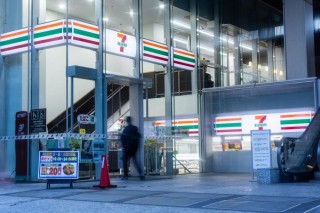Loading
Search
▼ 7-Eleven’s Japanese Owner Wants To Be Considered As Important As Chipmakers As Circle K’s Operator Mounts A Takeover Bid
- Category:Other
The owner of the 7-Eleven convenience store chain, Seven & i Holdings, hopes the Japanese government can give it leverage against a takeover by Canada’s Alimentation Couche-Tard.
Seven & i Holdings is seeking to have its status upgraded to a “core” rating under Japan’s Foreign Exchange and Foreign Trade Act (FEFTA), noted Bloomberg and the Financial Times, citing unnamed sources.
FEFTA requires foreign investors to notify the Japanese government if they want to acquire a stake in a Japanese firm considered part of a “core” business sector.
Previously, the government has granted this status to companies in the semiconductor and nuclear industries, in order to address the risk of commercial technologies being used for military purposes.
Just two weeks ago, Japan expanded its list and gave chip-equipment makers a “core” rating. Governments are increasingly focusing on chipmaking tools as a key part of the semiconductor supply chain.
Seven & i Holdings made the application after it was approached by Alimentation Couche-Tard with a preliminary proposal for a full takeover, according to Bloomberg. Seven & i Holdings has a market capitalization of $38 billion, and if Alimentation Couche-Tard’s takeover is successful, it would be the largest takeover of a Japanese company.
If Seven & i’s status is upgraded, any potential foreign buyer would be subject to vetting by Japan’s finance ministry. (Normally, a foreign takeover of a company not designated as “core” only needs government approval after a deal is agreed to.) Japan has not formally blocked any transaction since FEFTA was amended in 2020, according to the law firm Mori Hamada & Matsumoto.
Shares in Seven & i Holdings dropped around 1% in Japan trading Wednesday following news of the company’s request for protection.
Seven & i Holdings declined to comment when approached by Fortune. Japan’s Ministry of Finance did not immediately respond to a request for comment.
7-Eleven: A vital part of Japan?
While perhaps not as flashy as a semiconductor company, 7-Eleven stores play a key role in Japan’s convenience store sector and are a part of everyday life.
Beyond offering food and drink, a 7-Eleven in Japan also provides 24-hour access to services like ATM cash withdrawals, printing and scanning, bill payments, municipal services, and package delivery.
7-Eleven, originally a U.S. brand, first came to Japan in 1974, after Ito-Yokado opened the first outlet in Tokyo. The Japanese retail company bought a 70% stake in 7-Eleven in 1991.
Seven & i Holdings is seeking to have its status upgraded to a “core” rating under Japan’s Foreign Exchange and Foreign Trade Act (FEFTA), noted Bloomberg and the Financial Times, citing unnamed sources.
FEFTA requires foreign investors to notify the Japanese government if they want to acquire a stake in a Japanese firm considered part of a “core” business sector.
Previously, the government has granted this status to companies in the semiconductor and nuclear industries, in order to address the risk of commercial technologies being used for military purposes.
Just two weeks ago, Japan expanded its list and gave chip-equipment makers a “core” rating. Governments are increasingly focusing on chipmaking tools as a key part of the semiconductor supply chain.
Seven & i Holdings made the application after it was approached by Alimentation Couche-Tard with a preliminary proposal for a full takeover, according to Bloomberg. Seven & i Holdings has a market capitalization of $38 billion, and if Alimentation Couche-Tard’s takeover is successful, it would be the largest takeover of a Japanese company.
If Seven & i’s status is upgraded, any potential foreign buyer would be subject to vetting by Japan’s finance ministry. (Normally, a foreign takeover of a company not designated as “core” only needs government approval after a deal is agreed to.) Japan has not formally blocked any transaction since FEFTA was amended in 2020, according to the law firm Mori Hamada & Matsumoto.
Shares in Seven & i Holdings dropped around 1% in Japan trading Wednesday following news of the company’s request for protection.
Seven & i Holdings declined to comment when approached by Fortune. Japan’s Ministry of Finance did not immediately respond to a request for comment.
7-Eleven: A vital part of Japan?
While perhaps not as flashy as a semiconductor company, 7-Eleven stores play a key role in Japan’s convenience store sector and are a part of everyday life.
Beyond offering food and drink, a 7-Eleven in Japan also provides 24-hour access to services like ATM cash withdrawals, printing and scanning, bill payments, municipal services, and package delivery.
7-Eleven, originally a U.S. brand, first came to Japan in 1974, after Ito-Yokado opened the first outlet in Tokyo. The Japanese retail company bought a 70% stake in 7-Eleven in 1991.
- August 29, 2024
- Comment (0)
- Trackback(0)


